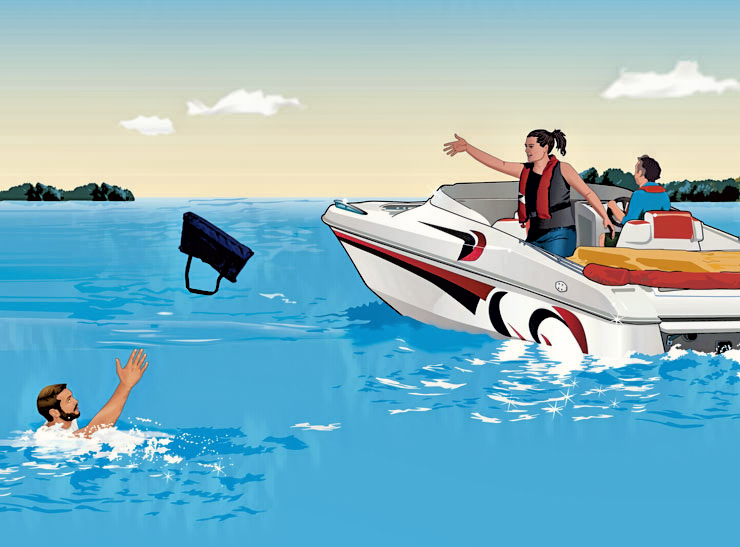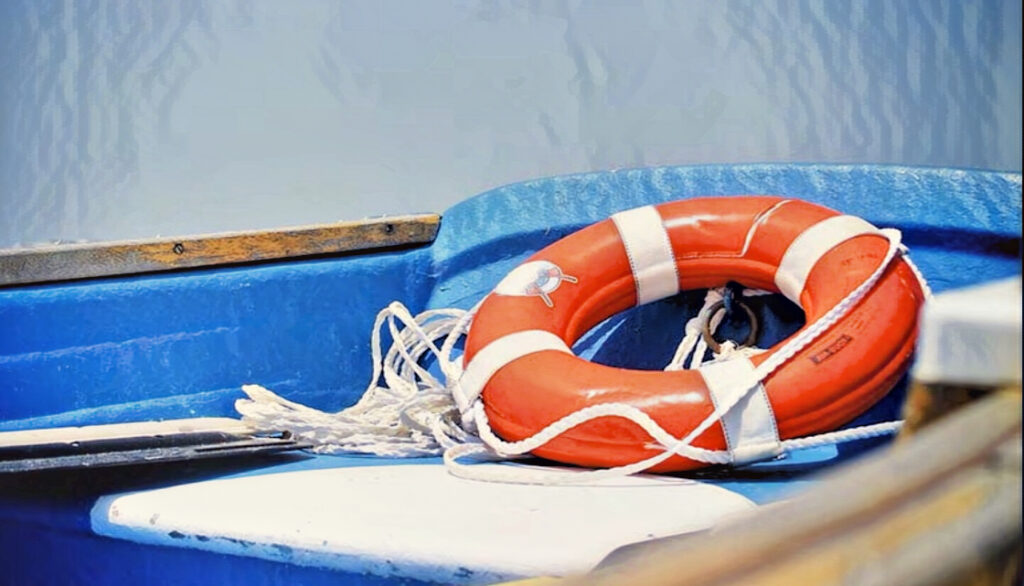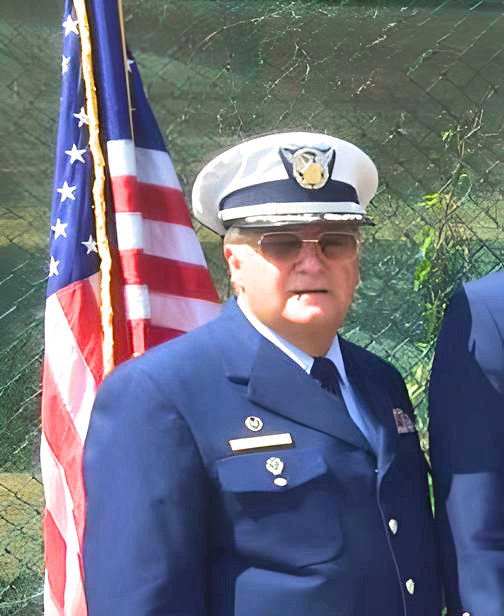By Frank M. Ferraiuolo
When you’re out on the water, boating emergencies can arise unexpectedly. Here’s how to prepare for and respond to common situations:
Bad Weather Boating Emergencies
Always check the weather before you leave. High winds and storms can make boating dangerous. If the weather changes, head for safety or the nearest port. Have everyone put on their personal flotation devices (PFDs). Turn into the wind, surf at a 45-degree angle, and slowly travel to safety.
Dehydration
Dehydration can occur from sun exposure, alcohol, and physical activities. Drink water every 30 minutes to stay hydrated. The boat driver should never consume alcoholic beverages.
Boating Accidents

Accidents often happen due to driver inattention, lack of a lookout, and alcohol. Prevent these by staying alert and avoiding alcohol. If someone falls overboard, follow the RTRG rescue technique:
- Reach with a pole.
- Throw a floatable ring or cushion with a propylene line.
- Row or move slowly toward the person.
- Go and get help.
Someone Falling Overboard
People fall overboard when they sit on the gunwale, seat back, or sides and front of the boat. If this happens, use the RTRG technique mentioned above to rescue them.
Boat Capsizes

If your boat capsizes, stay with the vessel. It will stay afloat, making you more visible to rescuers. If your boat sinks, ensure your PFD is secure. If with others, huddle together and use the HELP position (knees up) to avoid hypothermia.
Boat Runs Aground
If you run aground, check if everyone on board is okay and if you are taking on water. Plug any hole with anything available to prevent sinking. If no damage is done, rock the boat and try to get off the high spot. If this fails, call for help or wait if the tide is rising.
Carbon Monoxide Poisoning
Carbon monoxide poisoning can occur when too much canvas is up, causing the “station wagon effect.” Install a CO detector to avoid this. It can also happen when Teak surfing around the stern of the boat with the engine running.
Boating Emergencies: Vessel Catches Fire
If a fire occurs, have everyone put on their PFDs and turn the ship so the fire is downwind. Use a fire extinguisher and remember PASS:
- Pull the pin.
- Aim at the base of the fire.
- Squeeze the handle.
- Sweep from side to side.
Wait a minute and repeat if necessary. If you cannot control the fire, call for help on the VHF radio, abandon the boat, and wait for assistance.
Communication
All calls for help should be made on Marine Radio channel 16. The U.S. Coast Guard and other boaters monitor this channel. Cell phones are useful but unreliable offshore.
Being Prepared For Boating Emergencies
These emergencies are not typical, but staying attentive and prepared helps prevent them. Before leaving the dock, ensure everyone on board knows where the safety equipment and PFDs are. Carry a well-equipped first aid kit. Familiarize yourself with publications about boating safety issued by the U.S. Coast Guard.
By being prepared, you can handle emergencies effectively and keep everyone safe on the water.


Leave a Reply